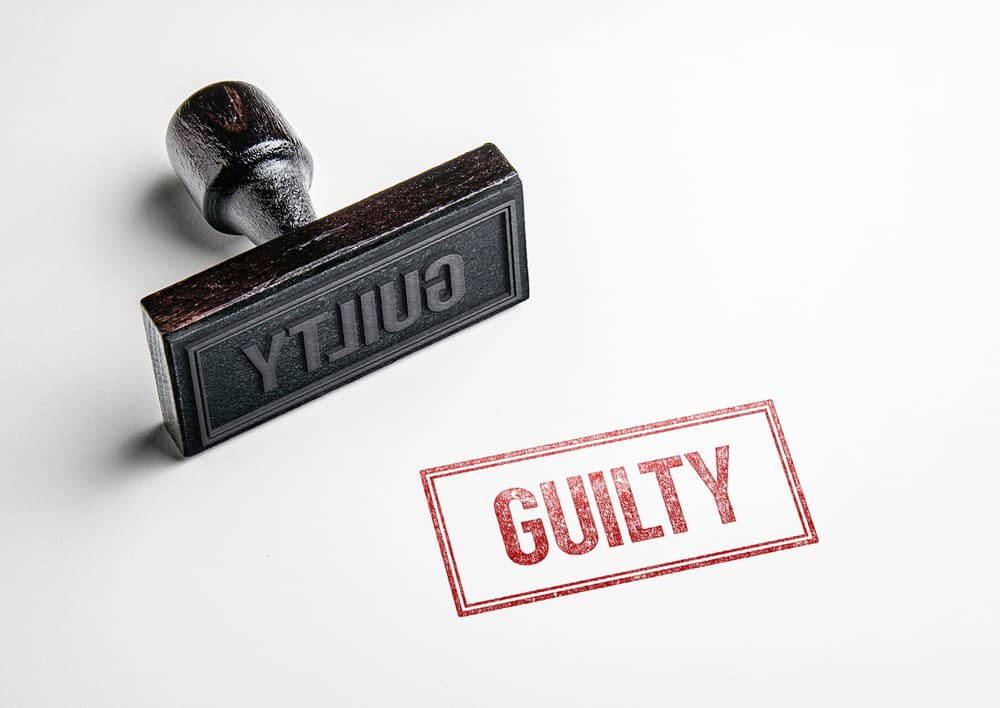
Daily life can be overwhelming, with a constant influx of notifications, calls, and distractions clamoring for our attention. Unfortunately, this also applies to most regular tasks, including driving, which can have severe consequences. An alarming study by the Advocates for Highway Safety and Selective Insurance found that most people are guilty of distracted driving.
In fact, in a recent study conducted, over 85 percent of drivers who drive as part of their job admitted to using a cellphone while driving. This percentage remains high for all other motorists, with 70 percent of those surveyed reporting the same behavior. Therefore, the chance of being affected by a distracted driver’s negligence has never been higher.
For injury victims, understanding their legal rights is imperative. An Altoona car accident attorney can provide guidance on navigating the aftermath of these incidents. If you or a loved one has become the victim of distracted driving, it’s time to speak to a lawyer to protect your rights and financial interests.
Even worse, a reported 30% of respondents admitted to taking photos while driving, while 45% checked social media, and 35% of drivers admitted to livestreaming or watching videos while driving.
The prevalence of distracted driving in the United States speaks volumes about the risks that drivers and passengers face every day. The implications are serious, with distracted driving being a leading cause of accidents on roadways.
Distracted driving manifests in various ways, each with the potential to cause significant harm. Each year, thousands of motorists are killed by another driver’s distraction and subsequent negligence. All drivers have a duty of care to uphold on the road. However, not all of them fulfill this duty.
The following forms of distraction are common in road accidents:
Texting is often cited as the most hazardous distraction. With eyes and attention diverted from the road, even a split-second lapse can have tragic consequences. Just averting one’s eyes from the road for a couple of seconds can be fatal, so writing an entire message is highly negligent.
Talking on a phone, even hands-free, can impair a driver’s focus. Conversations can divert cognitive attention from driving, increasing the risk of a collision. Legal responsibility becomes a topic of interest due to its potential consequences.
Many individuals eat while driving, underestimating the distraction it poses. Handling food or drinks requires attention that should be dedicated to operating the vehicle. This habit may lead to dire consequences, underscoring the connection between daily routines and potential legal negligence.
Changing the radio station, setting a new GPS route, or adjusting other controls takes a driver’s attention away from the road. This common behavior is linked to accidents, reinforcing the importance of maintaining focus.
Daydreaming or thinking about other matters can also serve as a distraction. A driver’s thoughts may drift away from the task of driving, leading to missed signals or misjudgments of the road ahead. This form of distraction is more insidious but no less dangerous than external distractions.
These distractions underscore the importance of awareness and personal responsibility. When drivers allow themselves to become distracted, they may become negligent, and victims have the right to seek legal recourse.
Distracted driving often results in several types of accidents, each with its potential for harm, and some may cause severe long-term problems.
T-bone collisions, where the front of one vehicle strikes the side of another, often occur at intersections. These accidents can result in severe injury due to the sides of vehicles offering less protection.
Rear-end accidents occur when a following vehicle collides with the one in front, typically due to the driver’s inattention. These are frequent in stop-and-go traffic and can result in serious neck and back injuries. Pursuing claims for damages in these cases often requires skilled negotiation.
Rollovers are violent accidents where a vehicle flips onto its side or roof. They often happen with large vehicles or due to abrupt maneuvers. The severity of these accidents typically leads to extensive legal processes.
Head-on crashes are among the most lethal, occurring when two vehicles strike each other’s front ends. The force involved in such accidents often results in tragic outcomes, requiring detailed attention to the legal intricacies for compensation.
The impact of these accidents often determines the nature of legal proceedings and the amount of compensation involved. Having a lawyer becomes more critical in managing the claims effectively.
Being involved in a distracted driving accident can be overwhelming. Still, there is hope for all distracted driving victims — an attorney can help reclaim lost income and damages for injuries and emotional trauma. If anything, they can take on those stressful responsibilities on behalf of their client. The benefits of hiring a car accident lawyer are substantial and include:
A car accident lawyer’s understanding of legal procedures ensures that your claim is processed correctly, and they will identify all the areas where compensation is achievable. You need a seasoned attorney on your side after becoming a victim of distracted driving.
Lawyers have access to resources that enable them to investigate the circumstances of the accident, gathering key evidence for your case. They know who to talk to, where to find the right information, and what those involved in the case must do.
Insurance companies often aim to minimize payouts. Lawyers, familiar with these tactics, can negotiate for fairer settlements. Nothing will bring a victim down more than having to deal with lowball offers, cheap coercion tactics, and intimidation. Hiring a car accident lawyer eliminates many of these hurdles for the accident victim.
Each state has specific laws that can affect your case. A lawyer will know how to navigate these regulations effectively. Even beginning to understand which laws apply to your case is a full-time job in itself.
Attempting to manage these elements without legal assistance may result in undercompensation or claim denial. A lawyer becomes an advocate and guide, offering reassurance and clarity throughout the process. It makes perfect sense to reach out to a lawyer, who can offer free consultations and measure how strong your case is.
It isn’t just the initial impact of an accident where injuries are most felt; the long-term implications are often neglected. Certain injuries incurred from car accidents prove particularly costly, such as:
TBIs often require long-term medical care, surgeries, and rehabilitation, making them financially burdensome.
These injuries can lead to paralysis, necessitating lifelong care and substantial medical intervention.
Severe fractures may require surgery and necessitate extensive recovery time, resulting in significant medical expenses.
Whiplash can lead to chronic pain and mobility issues, requiring ongoing treatment.
Such injuries impose both visible and invisible costs, including emotional recovery. Lawyers assist in claiming compensation not just for immediate medical needs but also for losses like PTSD or chronic pain. Victims should document all symptoms and consult legal advice promptly.
Following any accident, multiple damages must be considered, depending on the circumstances and severity of the accident. Damages fall into different categories, and some accidents may involve supplemental claims if the negligence was particularly severe.
The three main categories for damages available in a claim include economic damages, non-economic damages, and punitive damages.
Economic damages refer to measurable financial losses that are supported by evidence, demonstrating clear financial impacts on the victim’s finances. These damages include:
We classify non-economic damages as compensation for other non-tangible losses that the victim experiences. These damages relate to any loss of living standards or emotional health resulting from the accident, such as:
In certain states, punitive damages may be applicable to extreme negligence or even intentional misconduct. We can all agree that some forms of distracted driving may fall into this category. Punitive damages are designed to deter negligent drivers from repeating their mistakes lest they cause more damage in the future.
In some states, wrongful death laws may apply to your accident claim, which means surviving family members may recover damages. Certain costs following the death of a victim could mean immediate family members or executors of the deceased’s estate can apply claims for:
Calculating these damages accurately is vital to reflect the full extent of the victim’s suffering. A lawyer ensures nothing is overlooked, preventing unjust or insufficient settlements.

Car Accident Lawyer, Robert S. Marcus
Insurance companies employ entire teams of attorneys and claims adjusters whose primary goal is to protect corporate profits—not your well-being. Their methods are often strategic and deceptive, designed to reduce payout amounts and discourage claimants from pursuing or undervaluing their cases.
This reality is why accident victims must partner with a lawyer who recognizes and can counter these manipulative tactics. Some of the most common strategies used by insurers might be:
Insurance companies may deliberately slow down the process, dragging out responses and paperwork. These delays are intended to exhaust your patience or financial stability, coercing you into settling for less than your claim is worth.
Insurers often request recorded statements early in the process. These recordings are later combed through to find inconsistencies or comments that can be twisted to minimize or deny your clai
They may offer an immediate, seemingly generous settlement. In truth, these quick offers often grossly underestimate your medical costs, future care, and emotional suffering.
Some insurers may outright reject your claim, asserting you were at fault or that the policy doesn’t cover the situation. This tactic relies on your lack of legal knowledge and can often be overturned with proper legal advocacy.
Insurance companies might hire investigators or monitor your online activity to find “evidence” that contradicts your injury claims—like photos or posts showing physical activity or emotional well-being.
Insurers may challenge the necessity or cost of your medical care, claiming treatments were excessive or unrelated to the accident. This tactic is used to reduce the reimbursement amount or deny the claim entirely.
An attorney neutralizes these approaches, advocating for your interests and ensuring fairness. Their role restores balance between you and the powerful insurance industry, which means you needn’t accept their assessment of your claim. For this reason alone, hiring a lawyer is the best course of action. You need the most-qualified person who can intervene on your behalf, and often, even an attorney’s presence can alleviate these tactics.
Victims of distracted driving accidents should consider scheduling a free consultation with a personal injury attorney as soon as possible. Timing matters. Collecting evidence and filing claims quickly can make a significant difference. Many lawyers work on a contingency basis, meaning there is no upfront cost for legal representation. Facing the aftermath of an accident can be daunting, but help is available to guide you through this chaotic chapter.
If distracted driving has disrupted your life, connect with a lawyer to discuss your case, and they will assess your claim based on what happened to you. Even if you have questions or need representation, an attorney will assist you in understanding your rights, options, and the clearest path to winning compensation for your damages. Don’t let insurance companies dictate your financial and emotional well-being; call an Altoona personal injury lawyer today.
Marcus & Mack
